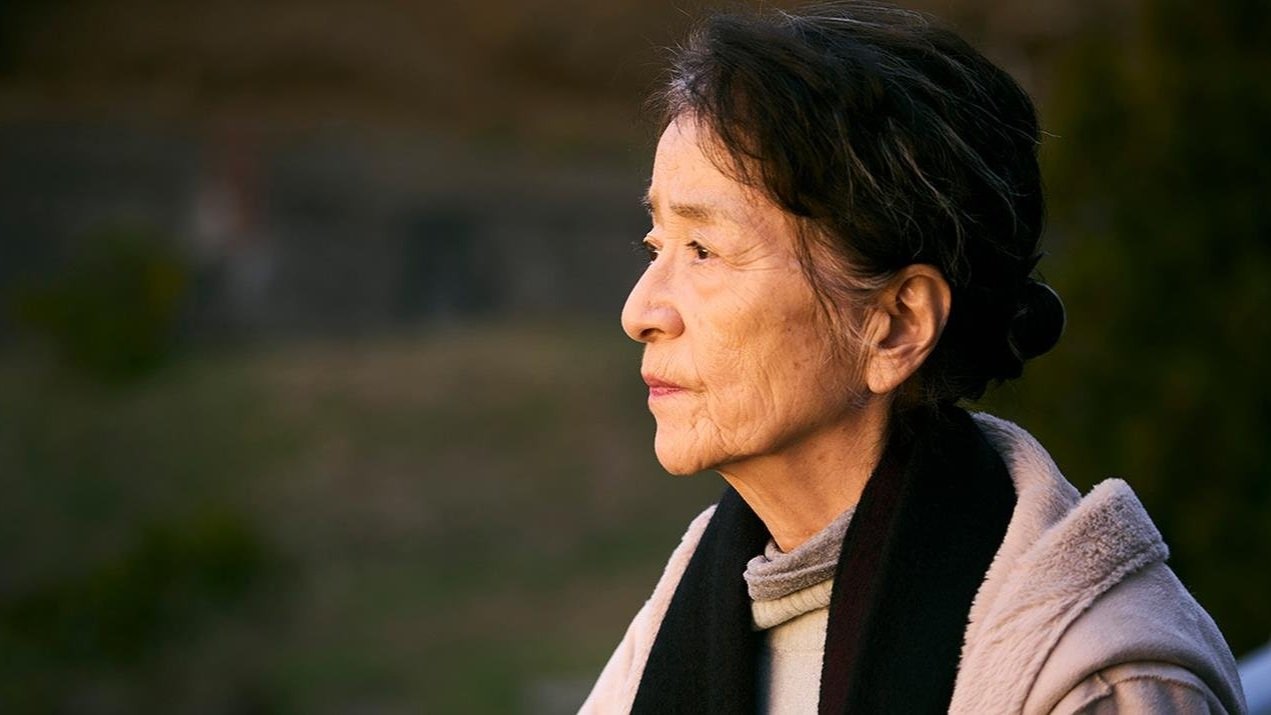Plan 75
Aided by a superb performance from Chieko Baishô, first-time director Chie Hayakawa tackles the problem of an ageing population in Japan.
Back in 1956, Shichirō Fukazawa published a novel entitled The Ballad of Narayama and its impact was such that it was then filmed not once but twice, first in 1958 and then by Shohei Imamura in 1983. The latter film, a masterpiece, came to mind as I was watching another Japanese film, Plan 75, this being a first feature by a female writer/director, Chie Hayakawa. The Narayama story, one set in a village in the 19th century, is centred on a population which, becoming too large to support themselves, come to believe that those who have reached the age of seventy have a duty to sacrifice themselves by voluntarily climbing a nearby mountain to await death there. As for the new film, it presupposes a time in the near future when the Japanese authorities have responded to society having a surplus of older citizens by setting up Plan 75, a scheme whereby anyone who is seventy-five or over can apply to end their lives, a step made the more attractive by an accompanying money payment which can be used in any way desired. Thus, the cash can go to help an applicant’s family (a contribution to education for a grandchild, for example), or to providing a fine form of funeral or to paying for a last holiday before the agreed day when they will die.
Comparing these two works serves not only to bring out the similarities but also the differences. Although The Ballad of Narayama was fictional, it had the character of something rooted in tradition and as such it seemed like a quintessentially Japanese work. In contrast to that, despite its convincing Japanese setting, Plan 75 comes across as a tale of general relevance. Admittedly the story that it tells is not one that focuses on old people whose health is so bad that they would readily embrace a right to euthanasia, but nevertheless at a time when there is worldwide discussion over the right of individuals to choose death over life Plan 75 feeds into that issue. It does so not by offering any didactic views but by inviting the viewer to ponder on the characters we meet and on what the film shows us of the lives of the elderly.
Two figures in particular stand out. Very much the key focus is 78-year-old Michi (Chieko Baishô) a widow who lives alone and who due to her age loses a job that has helped to give her a purpose in life. The other is Yukio Okabe (Taka Takao), another old person on his own and one who wants to apply under the scheme. When he does so, he finds that the young man who is the processing agent he first meets is none other than his own nephew, Hiromu (Hayato Isomura). Others who come to play an important role include Maria (Stefanie Arianne), a nurse from the Philippines living in Japan, and Michi’s friend Ineko (Hisako Ôkata) who is also elderly.
It is, perhaps, a weakness that the narrative in Plan 75 which introduces these characters is initially relatively disjointed although everything does eventually fall into place. More importantly, the portrait of a society in which Plan 75 is set up and accepted is handled with a complete absence of any sense of melodrama. This is a film that is quiet in tone even at its most unsettling. We see from the start that those running the scheme show care and concern for the applicants but nevertheless, as time passes, it emerges that the service provided is good for business. Furthermore, although anyone can reconsider and opt out, in practice rules of procedure are designed to limit that likelihood and those employed in the scheme are expected to discourage any such notion. The film’s greatest achievement in terms of its screenplay is the way in which, quietly but persuasively, we see how, health apart, what most counts in old age is to escape loneliness. As we watch Hiromu drawing closer to the uncle he had not seen in twenty years and see Michi bloom through developing an unauthorised friendship with the woman (Yuumi Kawai) whose support is meant to be limited to contact over the telephone, Plan 75 makes us recognise the possibilities that can make old-age worthwhile.
Despite winning numerous awards, Plan 75 is less than a masterpiece and its final images, which vaguely take on a symbolical aspect, do not quite create the impact intended. Nevertheless, in a film that is well acted by everybody, the veteran actress Chieko Baishô is superb. Her portrayal of Michi finds her living the part: she is in every sense the heart of the film.
MANSEL STIMPSON
Cast: Chieko Baishô, Hayato Isomura, Stefanie Arianne, Taka Takao, Yuumi Kawai, Hisako Ôkata, Kazuyoshi Kushida.
Dir Chie Hayakawa, Pro Eiko Mizuno Gray, Jason Gray, Frédéric Corvez and Maéva Savinien, Screenplay Chie Hayakawa, from a story by Jason Gray and herself, Ph Hideho Urata, Pro Des Setsuko Shiokawa, Ed Anne Klotz, Music Rémi Boubal, Costumes Kanako Okamoto.
Loaded Films/Urban Factory/Fusee/Dongyu Club/Happenet Phantom Studios/WOWWOW-Curzon.
113 mins. Japan/France/Philippines/Qatar. 2022. UK Rel: 12 May 2023. Cert. 15.


